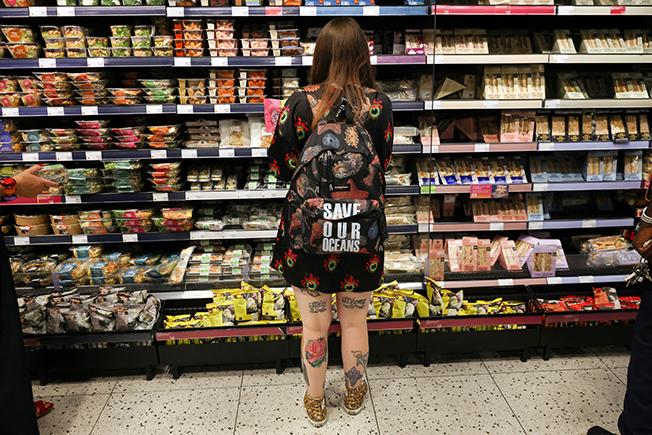The price of basic household foodstuffs continued to surge into March despite the inflation rate “slowing” to 5.8 per cent, according to the statistical service.
The rate of 5.8 per cent was the lowest recorded in the past 13 months, the service said, but some goods exploded in price – such as sugar, up 61.1 per cent year on year.
Key items such as bread and cereals are also up, this time by 10.7 per cent, while low fat milk is up by 12.2 per cent.
Other widely used local products such as olive oil are also up (16.7 per cent).
Meat saw some of the highest hikes, with pork up by 15.7 per cent, beef by 24.4 per cent and lamb 24.9 per cent.
Elsewhere, the price of beer has risen by 12 per cent and wine is up by 8.1 per cent.
On Friday, the United Nations food agency’s world index price fell in March for a 12th consecutive month and is now down 20.5 per cent from a record high hit one year ago following Russia’s invasion of Ukraine.
However, the FAO’s chief economist said, “while prices dropped at the global level, they are still very high and continue to increase in domestic markets, posing additional challenges to food security”.
“This is particularly so in net food importing developing countries, with the situation aggravated by the depreciation of their currencies against the U.S. dollar or the euro and a mounting debt burden,” the FAO added.
The FAO cereal price index fell 5.6 per cent month-on-month in March, with wheat registering a 7.1 per cent drop, maize a 4.6 per cent decline and rice easing 3.2 per cent.
Vegetable oils fell 3.0 per cent, some 47.7 per cent down on the level the index hit in March 2022, while the dairy index was down 0.8 per cent.
By contrast, sugar rose 1.5 per cent to its highest level since October 2016, hit by concerns over declining production prospects in India, Thailand and China. The meat price index rose by 0.8 per cent.







Click here to change your cookie preferences